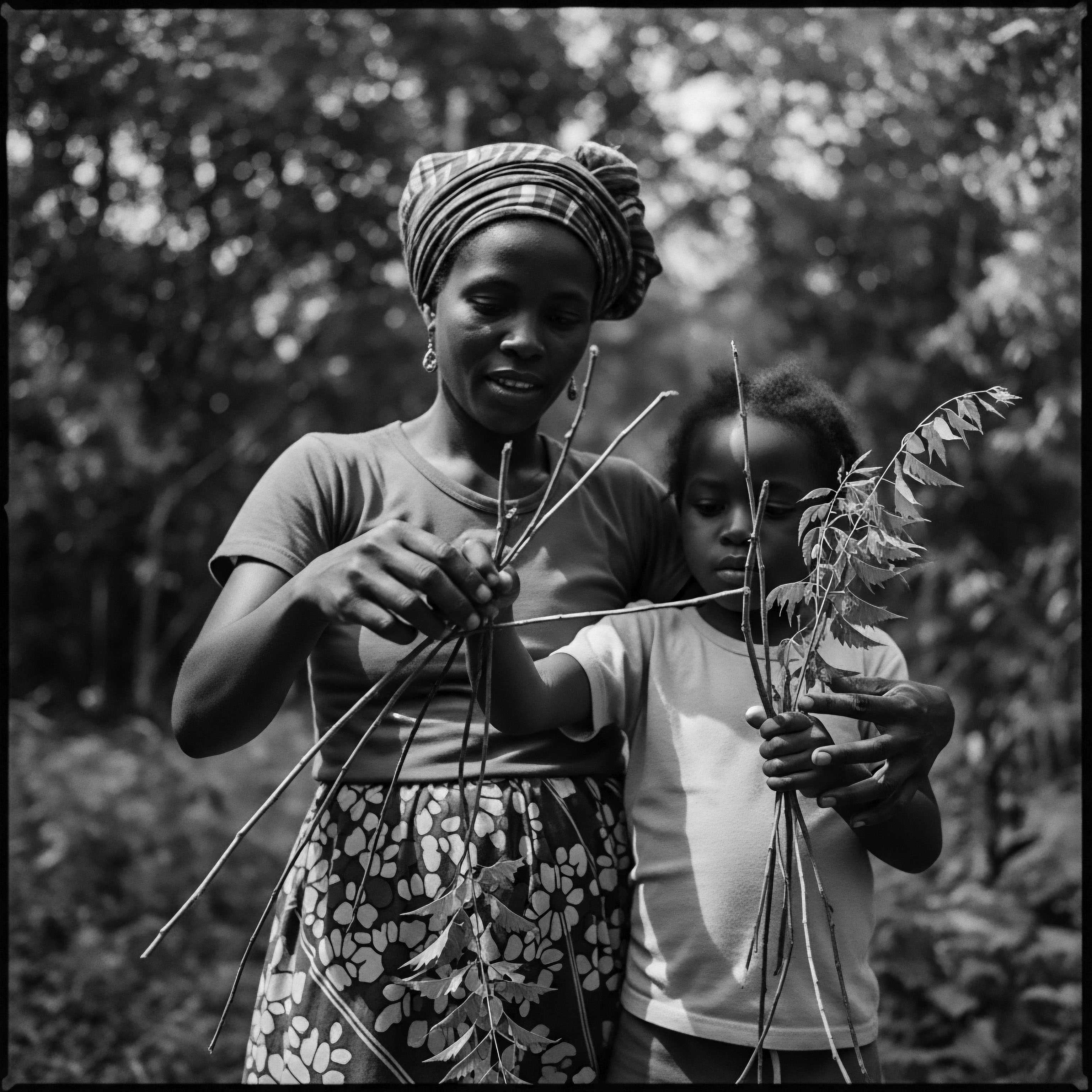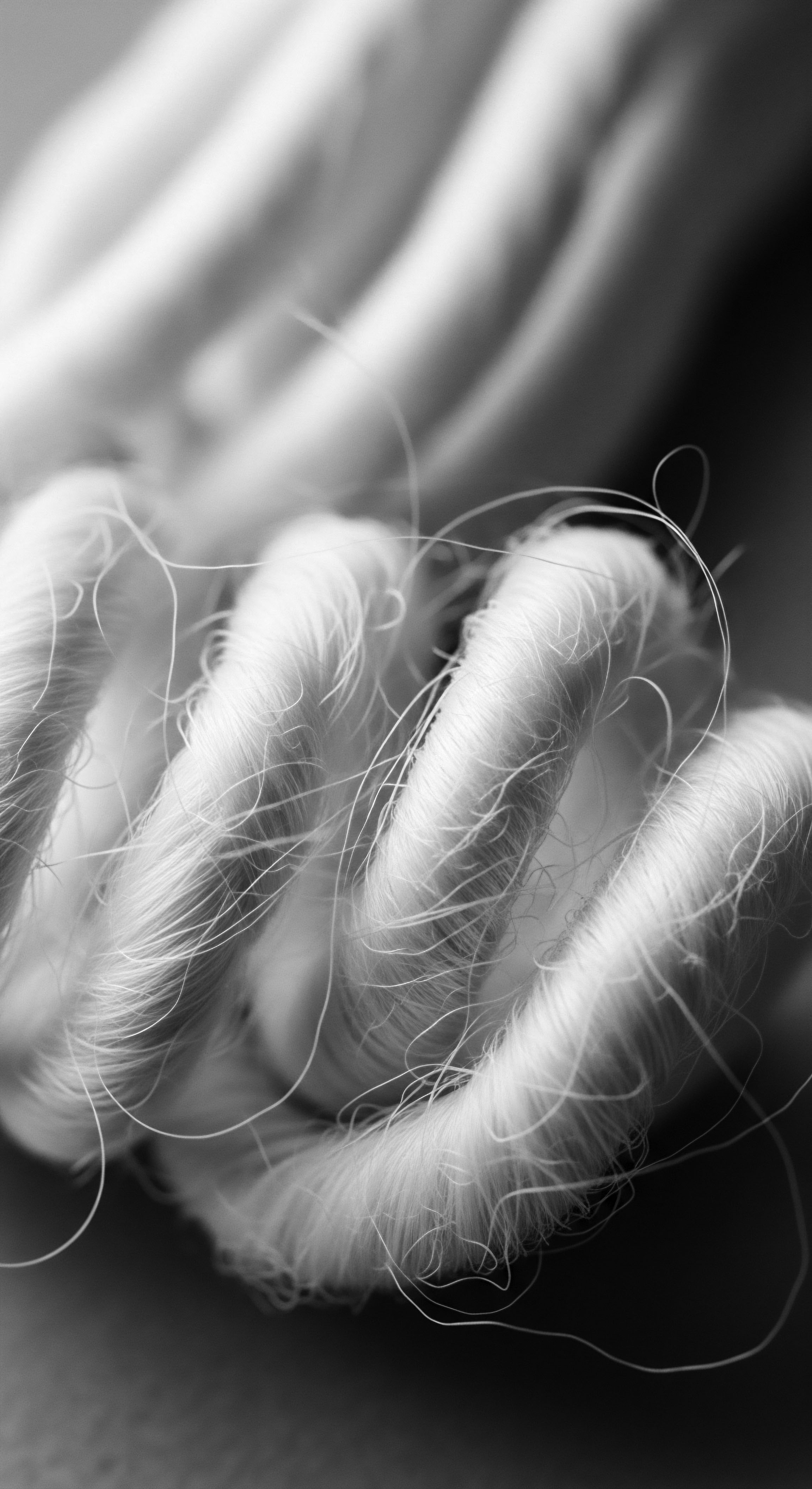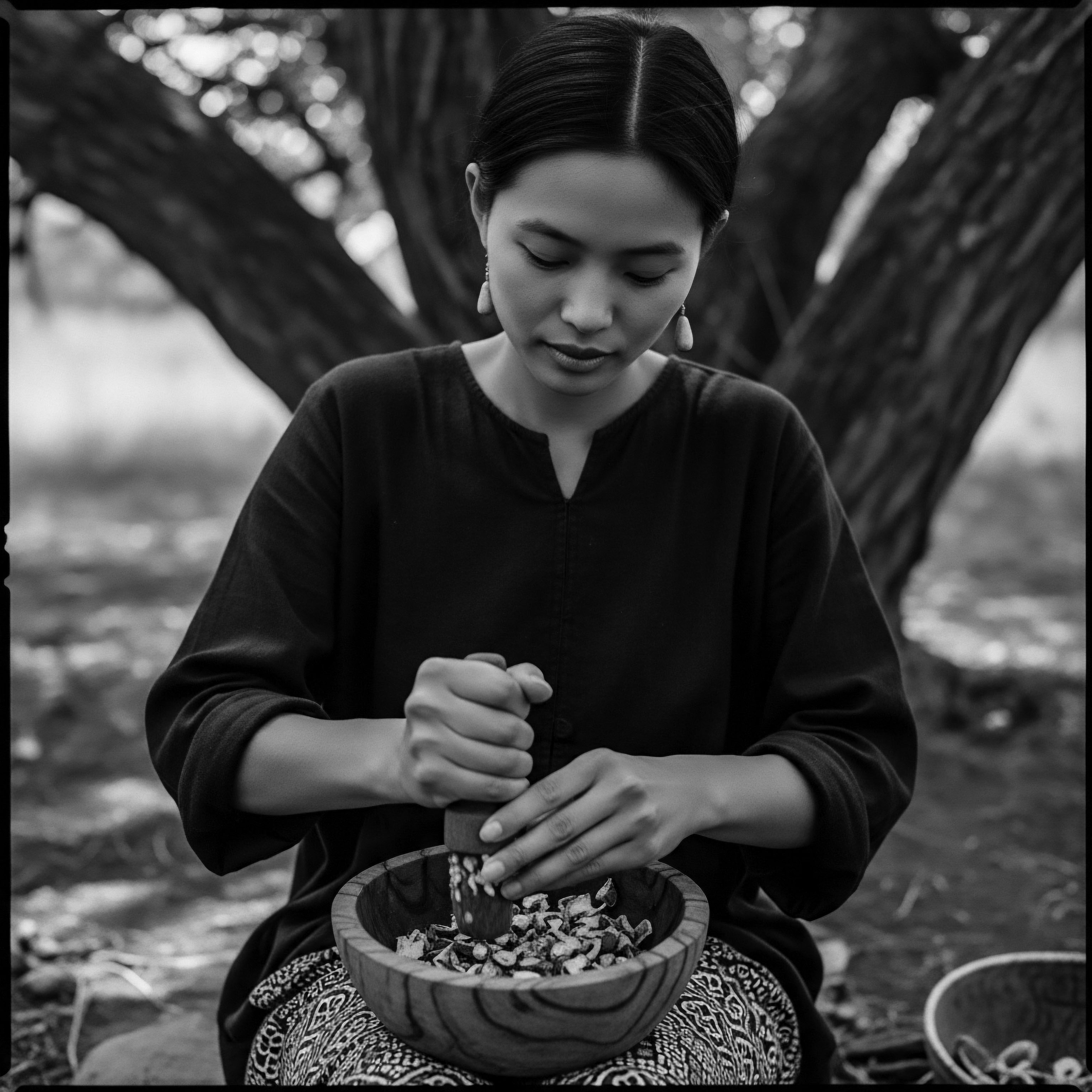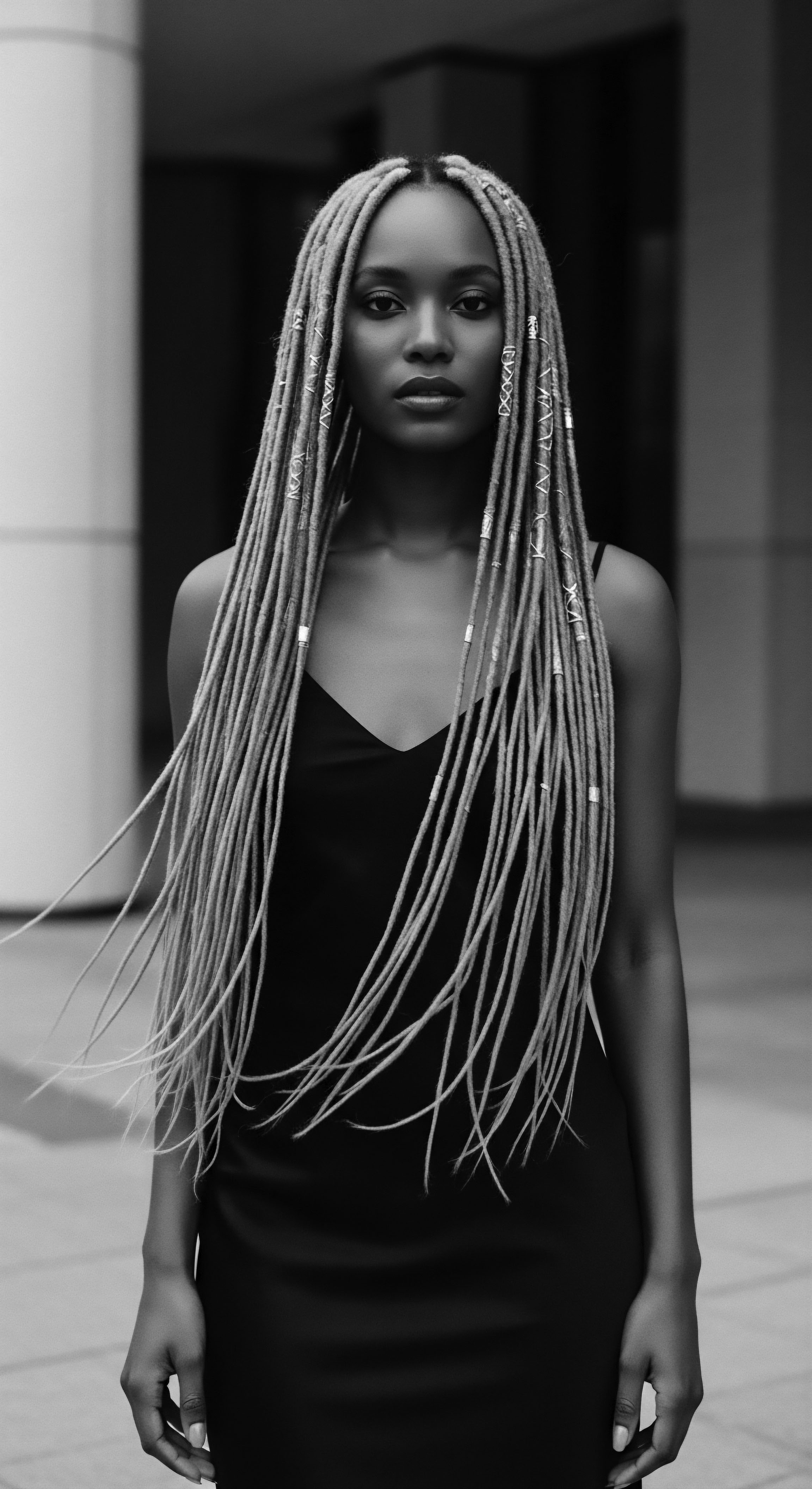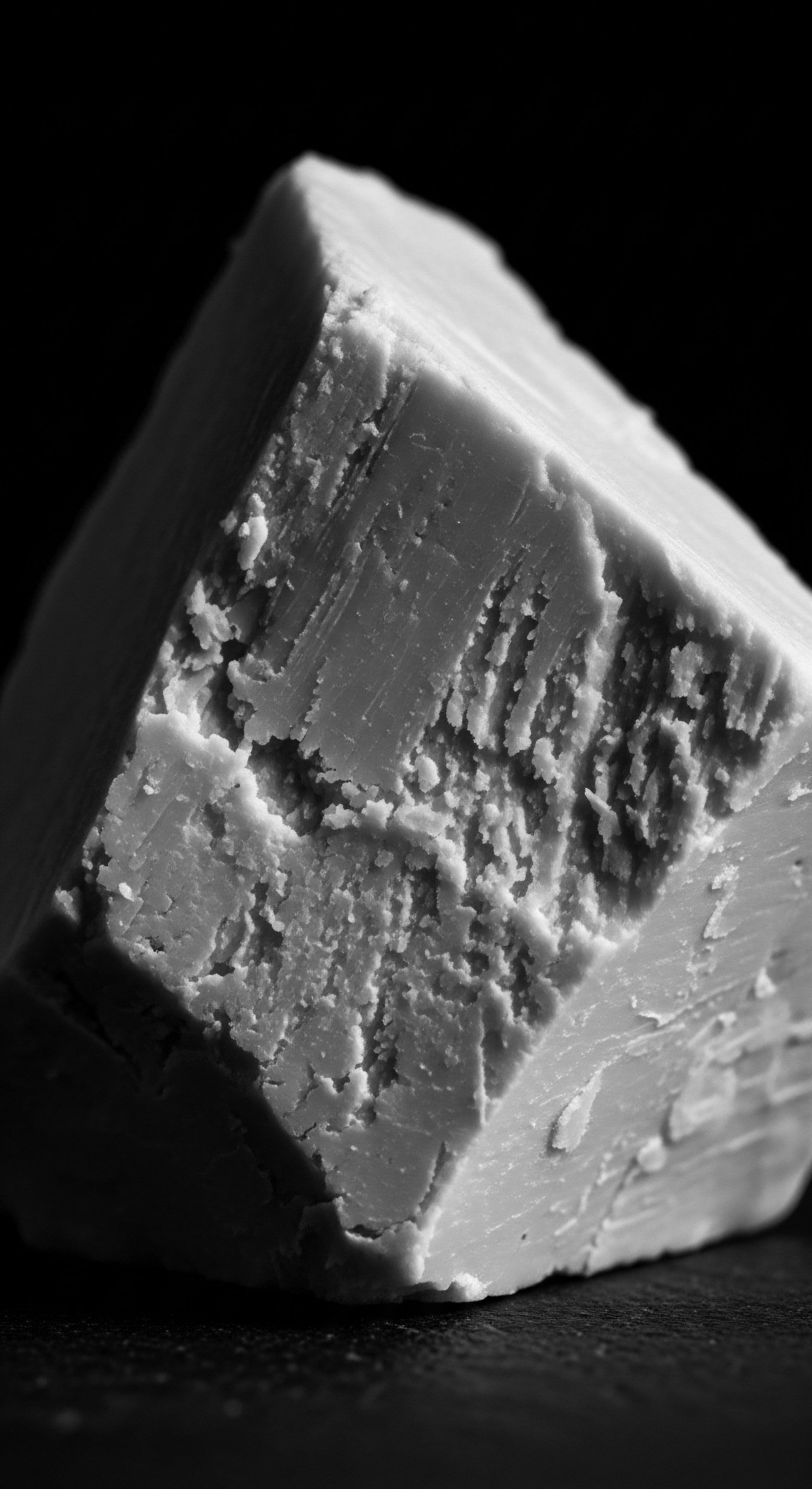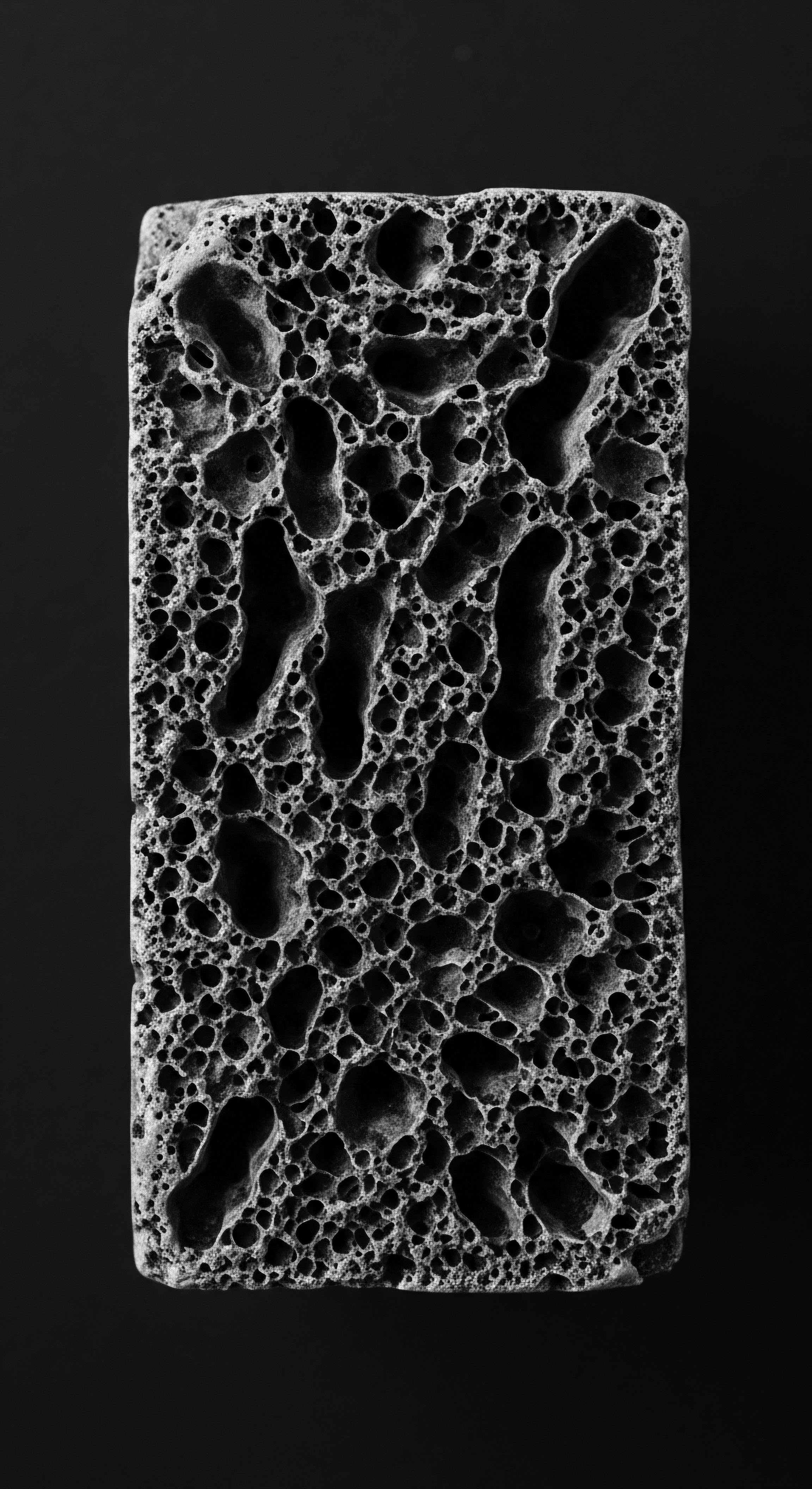
Fundamentals
The concept of ‘Modern Hair Care,’ as we understand it within Roothea’s living library, transcends mere product application or styling trends. It is, at its most elemental, the contemporary approach to nurturing hair, distinguished by its integration of scientific understanding with the enduring wisdom of ancestral practices. This definition extends beyond simple grooming to encompass the profound significance hair holds as a marker of identity, community, and heritage. It speaks to a conscious choice in how one tends to their crown, particularly for those with textured hair, where every strand carries the echoes of a rich, complex past.
In its simplest form, Modern Hair Care refers to the collection of practices, products, and philosophies currently employed to maintain the health, appearance, and integrity of hair. This involves an understanding of hair biology, the impact of environmental factors, and the diverse needs of various hair textures. For many, especially within Black and mixed-race communities, this contemporary approach also signifies a departure from historical pressures to conform to Eurocentric beauty ideals, embracing instead the natural glory of coils, curls, and waves.
Modern Hair Care is a blend of scientific knowledge and ancestral wisdom, shaping how we nurture our hair, especially textured hair, as a symbol of identity and heritage.
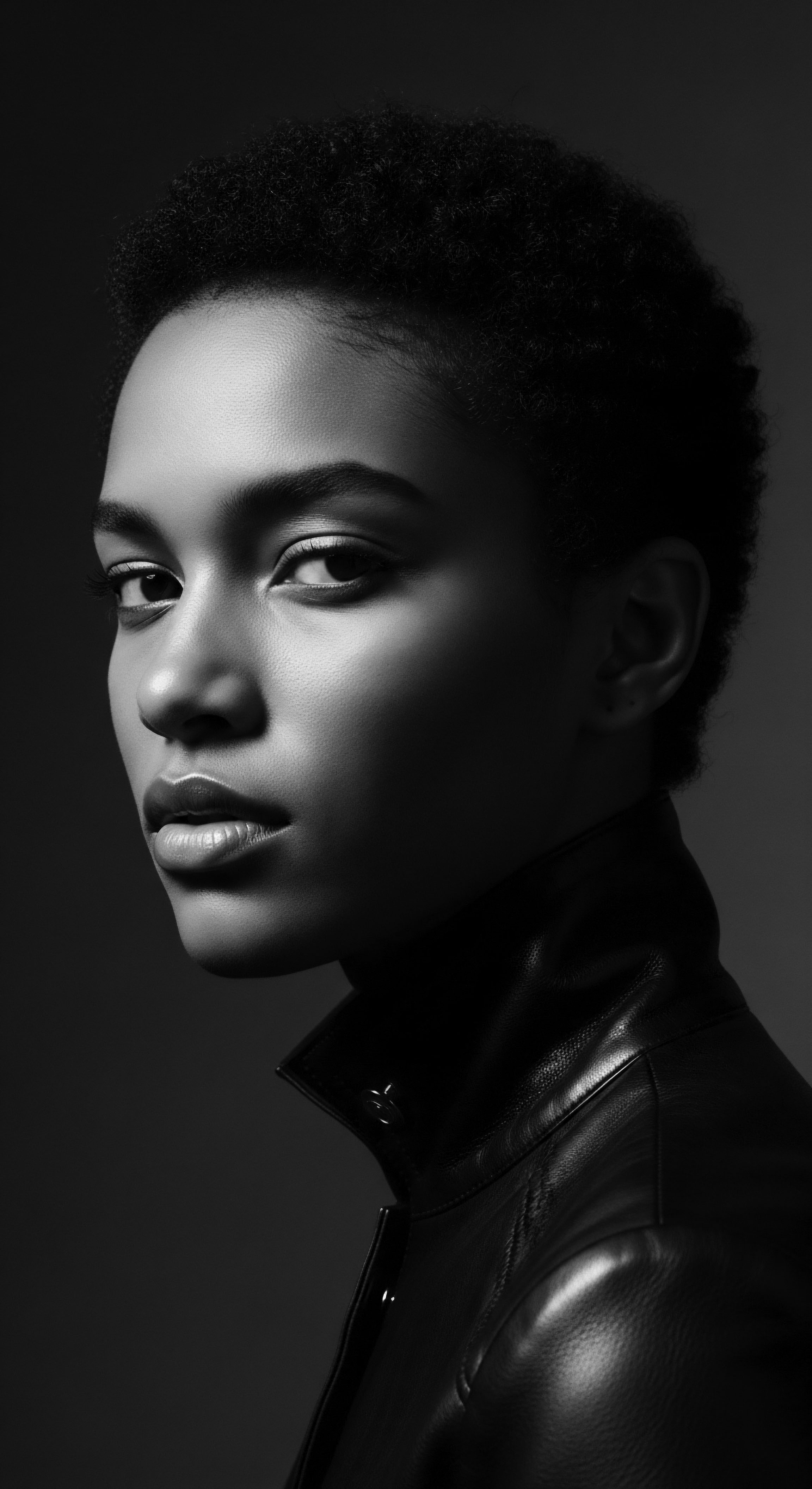
Understanding the Foundational Strands
To truly grasp the meaning of Modern Hair Care, one must acknowledge its foundational components. These are the elements that contribute to a holistic approach, moving beyond superficial aesthetics to address the very well-being of the hair and the individual.
- Hair Biology ❉ This involves comprehending the structure of the hair shaft ❉ its medulla, cortex, and cuticle ❉ and how these layers contribute to a strand’s unique characteristics. The shape of the hair follicle, whether round, oval, or elliptical, dictates the curl pattern, influencing how oils travel down the strand and how prone it might be to dryness or breakage. Understanding these biological realities allows for targeted care.
- Ingredient Knowledge ❉ Modern Hair Care often emphasizes a deeper awareness of what goes into products. This means recognizing the benefits of natural components, many of which have been used for centuries in ancestral practices, alongside an informed perspective on synthetic ingredients. It’s about discerning what genuinely nourishes the hair and scalp.
- Holistic Well-being ❉ Beyond the physical, Modern Hair Care acknowledges the connection between hair health and overall wellness. Stress, diet, and even emotional states can influence the hair’s vitality. This holistic view often finds its roots in ancient traditions where hair care rituals were deeply intertwined with spiritual and communal practices.
The early stirrings of Modern Hair Care, particularly for textured hair, can be traced back to the post-Civil War era in the United States. African American women, often excluded from mainstream beauty industries, began creating their own products and establishing “kitchen beauty shops” in their homes. This period saw the emergence of innovators like Madam C.J.
Walker and Annie Turnbo Malone, who developed specialized hair care systems tailored to the needs of Black women, laying the groundwork for a distinct industry that would eventually evolve into what we recognize today. Their efforts were not merely about commerce; they were acts of resilience and self-determination, providing economic opportunities and affirming beauty in a society that often sought to deny it.
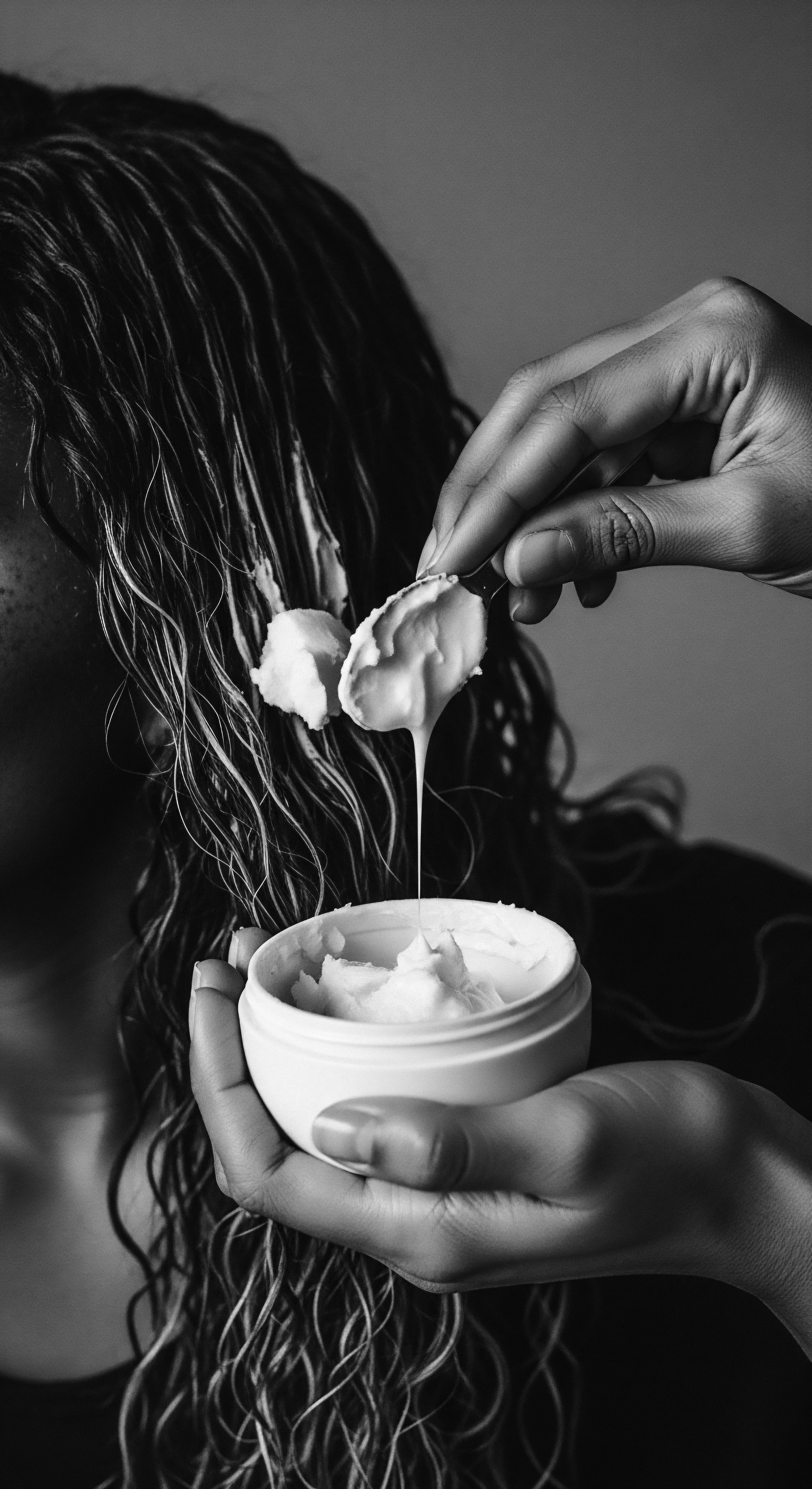
Intermediate
Moving beyond the foundational understanding, the intermediate interpretation of Modern Hair Care reveals a dynamic interplay between historical pressures, cultural reclamation, and scientific advancement. It is here that the meaning of ‘care’ deepens, encompassing not only the physical well-being of the hair but also its profound sociological and psychological dimensions. For textured hair, this involves navigating a complex legacy of beauty standards, often imposed, and the ongoing journey toward self-acceptance and affirmation.
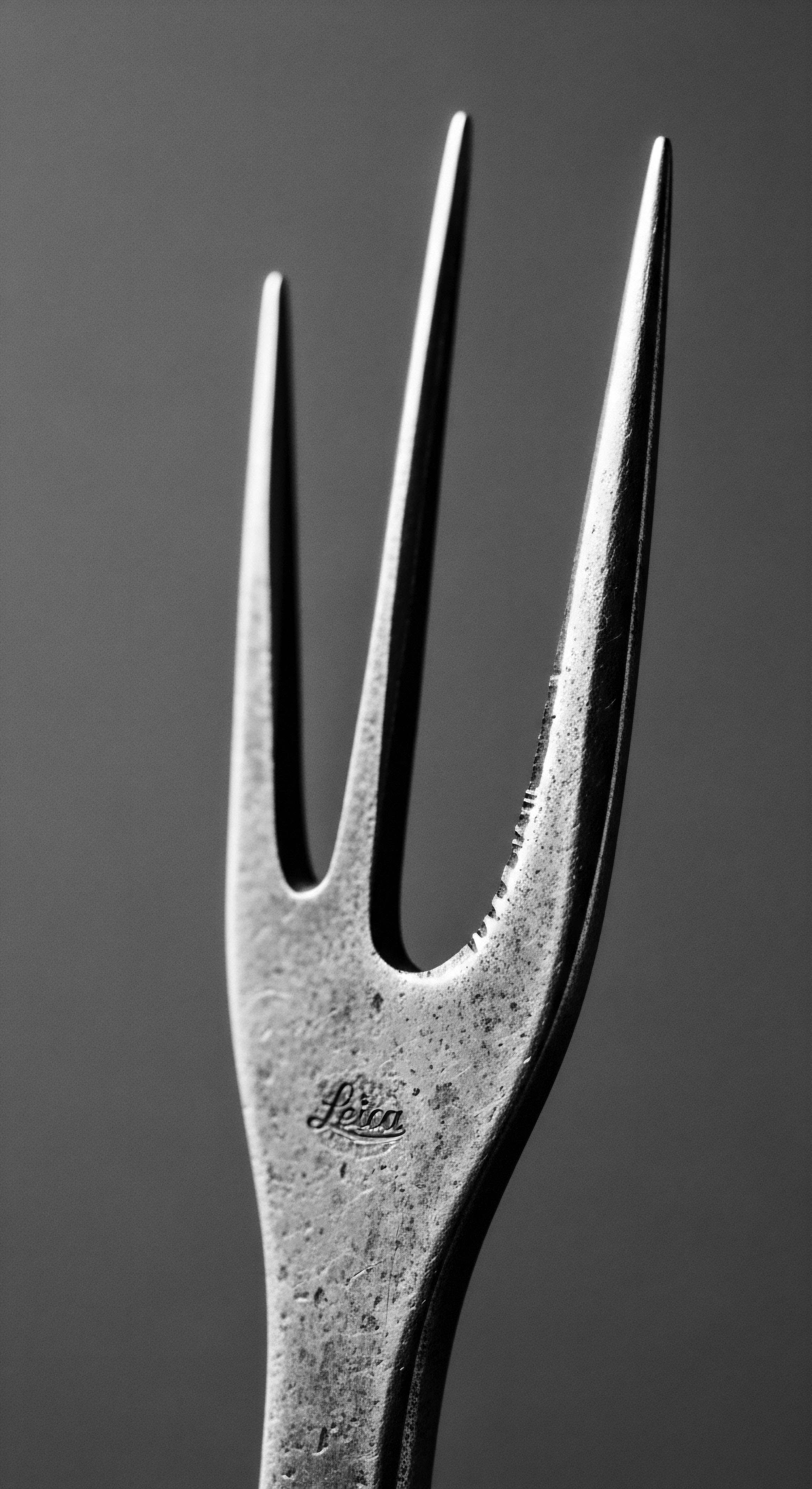
The Echoes of Conformity and Resistance
Historically, the trajectory of Black and mixed-race hair care has been significantly shaped by external societal pressures. During the eras of colonialism and slavery, hair became a visible marker within power structures, with enslaved Africans whose hair resembled European textures sometimes receiving preferential treatment. This cultural violence against afro-textured hair perpetuated a narrow, exclusionary definition of beauty, favoring straight hair and lighter skin, and influenced generations across the African diaspora. The persistent pressure to conform led many Black women and girls to rely on chemical hair relaxers to straighten their natural curls, a practice deeply ingrained in societal norms and often driven by a desire for social acceptance and perceived professionalism.
Modern Hair Care, particularly for textured hair, represents a journey of reclaiming identity from historically imposed beauty standards.
However, the narrative is not solely one of conformity. Throughout history, there have been powerful movements of resistance and reclamation. The “Black is Beautiful” movement of the 1960s, intertwined with the Civil Rights and Black Power movements, saw the Afro hairstyle emerge as a potent symbol of Black pride, identity, and defiance against Eurocentric beauty standards. This period marked a significant shift, encouraging individuals of African descent to wear their natural hair as a political statement and a celebration of their heritage.
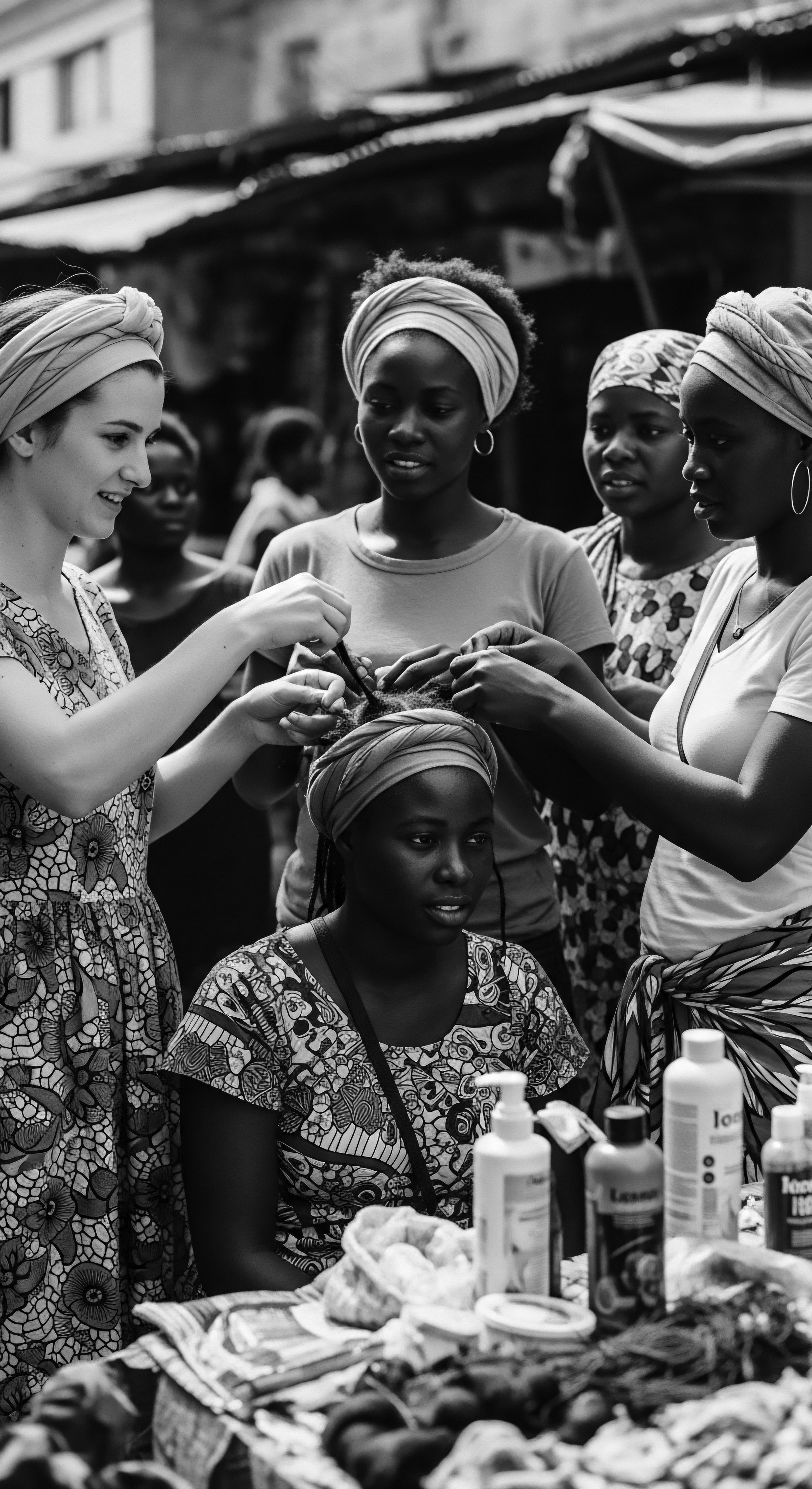
Bridging Ancestral Wisdom and Contemporary Practice
The current wave of the natural hair movement, which gained momentum in the 2000s, represents a further evolution of Modern Hair Care. It is a space where ancestral wisdom meets contemporary scientific understanding, creating a more informed and respectful approach to textured hair. This involves recognizing the unique structural characteristics of coily and curly hair, such as the elliptical shape of follicles and the uneven distribution of keratin, which make these hair types more prone to dryness and breakage.
Traditional indigenous hair care practices, from various cultures across the globe, offer a rich reservoir of knowledge that resonates with modern approaches. These practices often involve natural, locally sourced ingredients and emphasize holistic care for the scalp and strands.
The significance of hair oiling, for instance, has been a central tenet in indigenous hair care. Oils infused with herbs were meticulously applied to nourish hair from root to tip, imparting strength and moisture. This practice finds its modern counterpart in pre-poo treatments and scalp massages, which recognize the scientific basis for stimulating blood circulation and delivering nutrients to the hair follicles. Similarly, the ancient practice of using herbal rinses for cleansing and conditioning aligns with today’s understanding of pH balance and the benefits of botanical extracts.
The rise of the internet and social media has played a pivotal role in the resurgence of the natural hair movement, providing platforms for sharing information, fostering community, and challenging prevailing beauty norms. This digital landscape has allowed for a broader dissemination of knowledge about textured hair care, from product recommendations to styling techniques, often drawing directly from the collective experiences and ancestral knowledge within the Black and mixed-race communities.
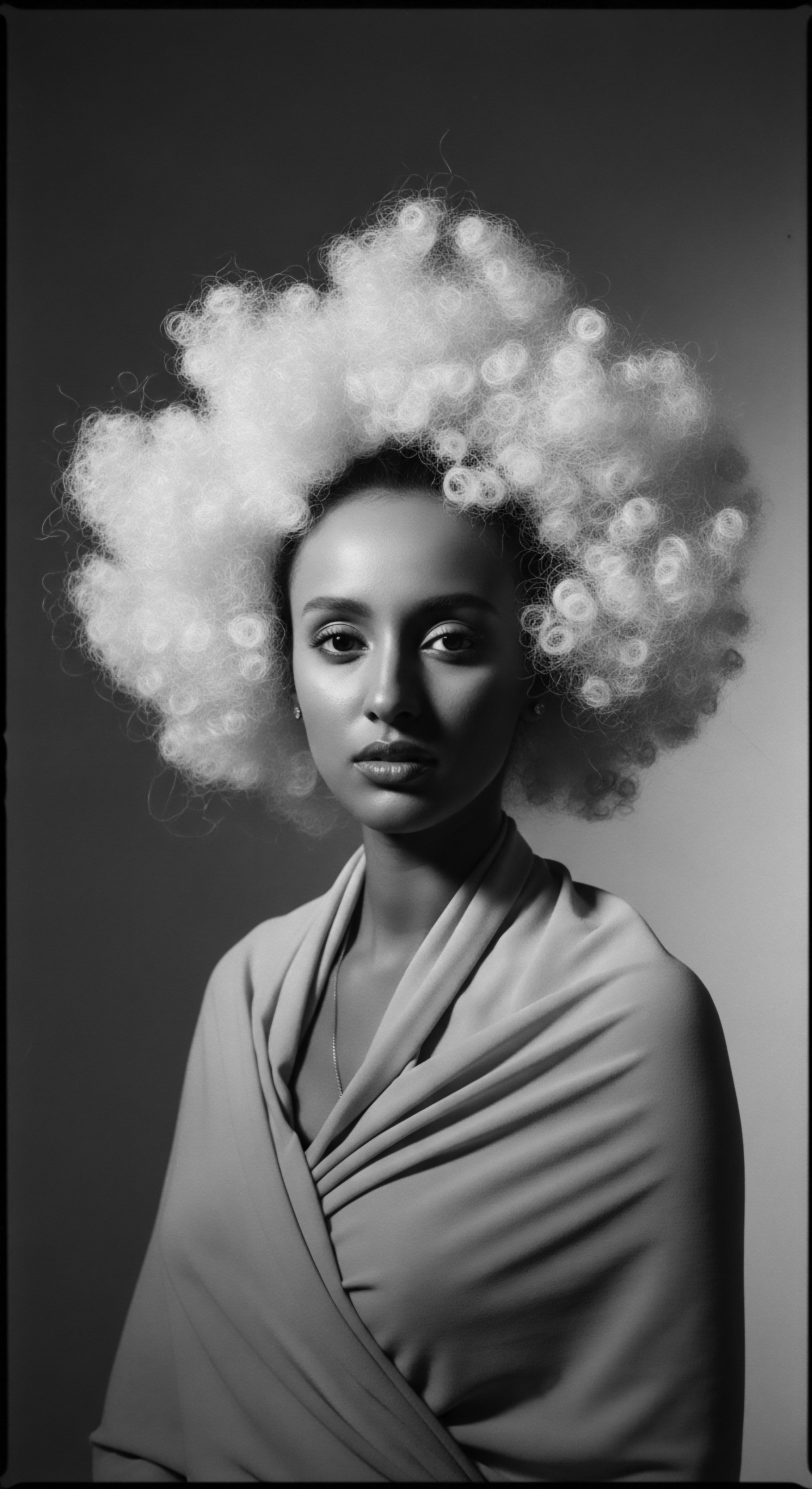
Academic
The academic delineation of Modern Hair Care, particularly as it pertains to textured hair, transcends a mere compilation of practices; it represents a profound meditation on the enduring interplay between human biology, cultural anthropology, and socio-historical power dynamics. This is not simply about products on a shelf, but about the deeply embedded meaning of hair as a conduit of identity, a canvas for resistance, and a testament to ancestral resilience. Its meaning is thus a complex, evolving construct, informed by rigorous inquiry into its diverse perspectives and interconnected incidences across various fields of human experience.
At its core, Modern Hair Care, when viewed through an academic lens centered on textured hair, signifies the contemporary understanding and application of principles for maintaining hair vitality, appearance, and structural integrity, grounded in both scientific advancements and the profound cultural heritage of Black and mixed-race communities. This interpretation acknowledges hair as a living archive, a site where historical oppression, cultural survival, and individual agency are continually expressed. It moves beyond a superficial definition to explore the deep implications of hair choices on psychological well-being, social acceptance, and the ongoing decolonization of beauty standards.
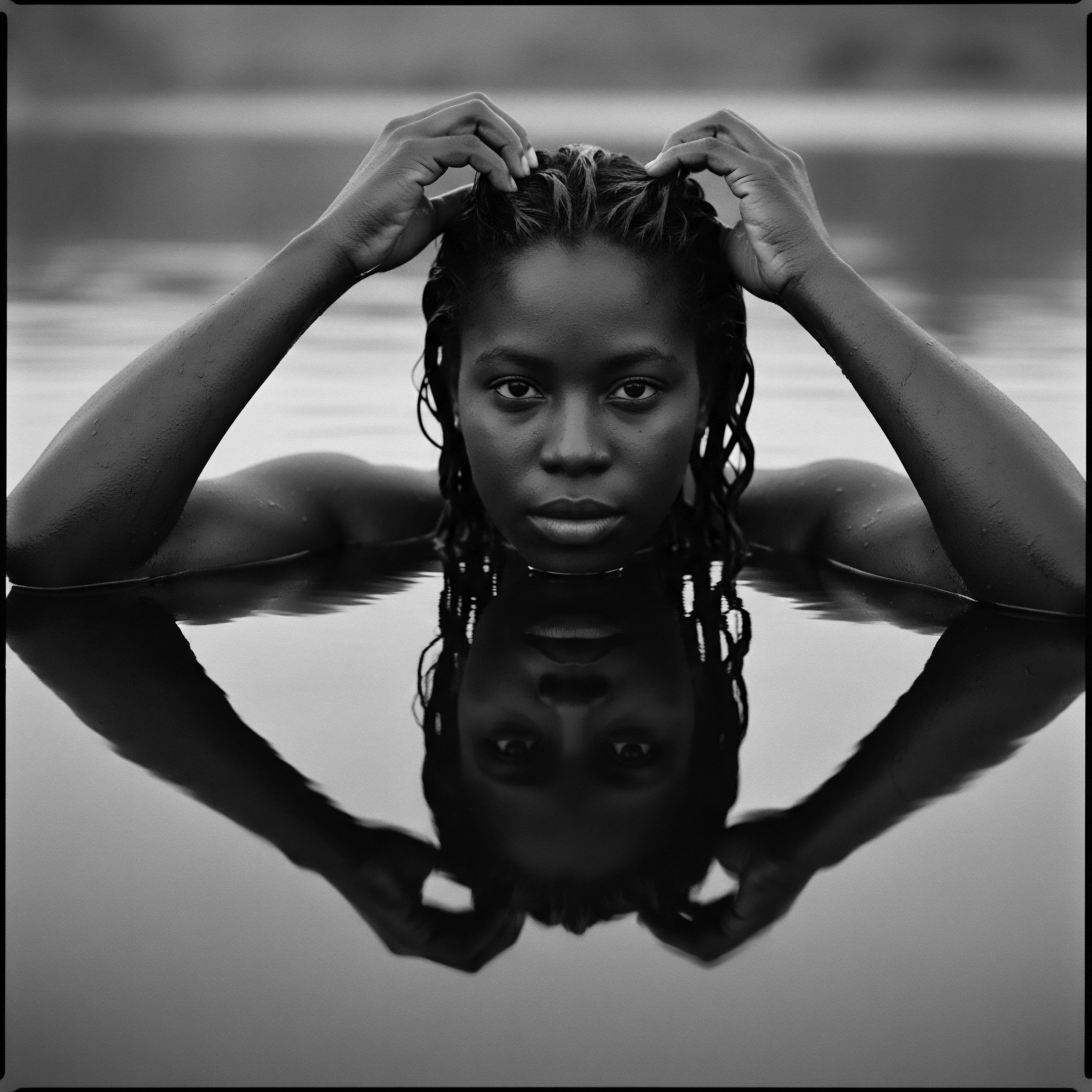
The Biocultural Fabric of Textured Hair
The unique physiological characteristics of textured hair ❉ its elliptical follicle shape, its tendency for dryness due to the winding path of sebum, and the inherent fragility at its bends ❉ are not merely biological facts; they are profoundly intertwined with cultural practices and historical experiences. The scientific understanding of these attributes validates many long-standing ancestral care methods. For instance, the emphasis on moisture retention in modern regimens for coily hair finds its echo in the traditional use of rich oils and butters, like shea butter, which have been revered for centuries in African communities for their emollient properties.
The hair shaft, composed primarily of keratin, possesses a cortex that can vary in density and sulfur content, contributing to the distinct coiling patterns seen in afro and curly hair types. This intricate biological architecture necessitates care approaches that differ significantly from those for straight hair, a fact often overlooked or actively suppressed under historical pressures to conform to Eurocentric ideals.
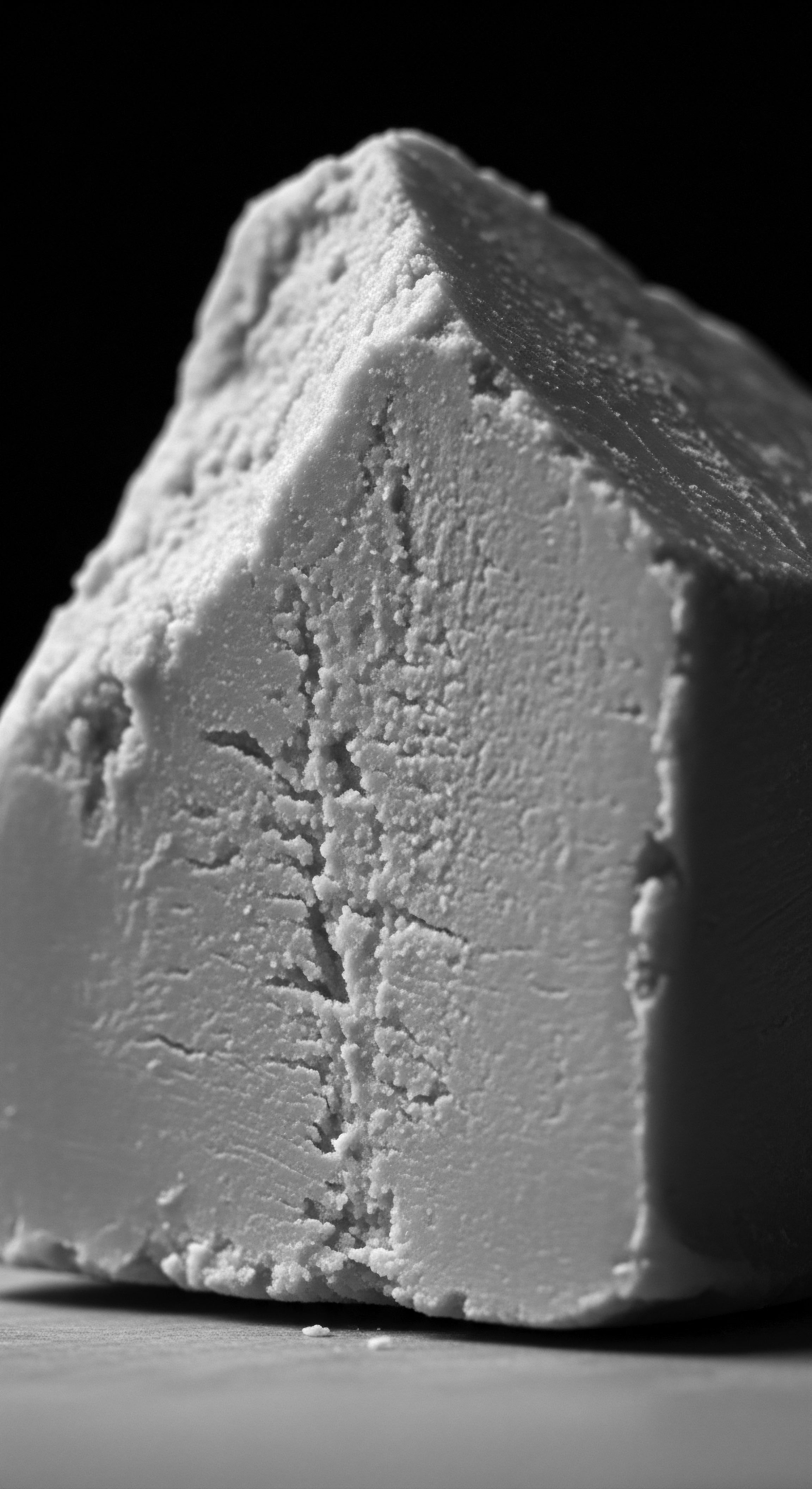
Hair as a Sociopolitical Text
The historical trajectory of textured hair in the diaspora offers a compelling case study of how beauty standards become instruments of social control and, conversely, sites of powerful reclamation. During the transatlantic slave trade, the deliberate stripping of traditional hair care practices was a calculated act of dehumanization, aimed at severing connections to ancestral identity. Yet, even under extreme oppression, enslaved Africans found ways to preserve elements of their hair heritage, often through intricate braiding patterns that served as maps for escape or coded messages within communities.
The pervasive influence of colonialism and its imposition of Eurocentric beauty ideals led to a widespread adoption of chemical hair straighteners. An ethnographic study by Ingrid Banks in 2000 illuminated the significant impact of “hairstyle politics” on the self-identity of Black American women, revealing the internalized pressure to achieve straightened hair for social and professional acceptance. This historical context underscores a critical point: the choice to chemically straighten hair was not always an act of self-hatred, but often a complex survival mechanism within a discriminatory society. Research indicates that achieving “manageable” hair, a sense of community belongingness, and even maternal choice were identified reasons for chemically straightening hair among Black women, despite the known physical harm and psychological conflict.
(Banks, 2000, as cited in “I Remember My First Relaxer”, 2024, p. 2). This statistic powerfully illuminates the deeply embedded societal pressures and complex motivations behind hair care choices within Black communities, transcending a simplistic binary of self-acceptance versus self-rejection.
The implications of this historical context extend into the present. Recent studies have sounded alarms regarding the health risks associated with chemical hair relaxers, linking them to an increased risk of uterine cancer. One NIH study found that women who use chemical hair relaxers at least four times a year were at twice the risk of developing uterine cancer compared to non-users, with 60% of frequent users identifying as Black women. This stark data underscores the ongoing, tangible consequences of beauty standards rooted in historical oppression, highlighting a critical area for public health intervention and advocacy within Modern Hair Care.
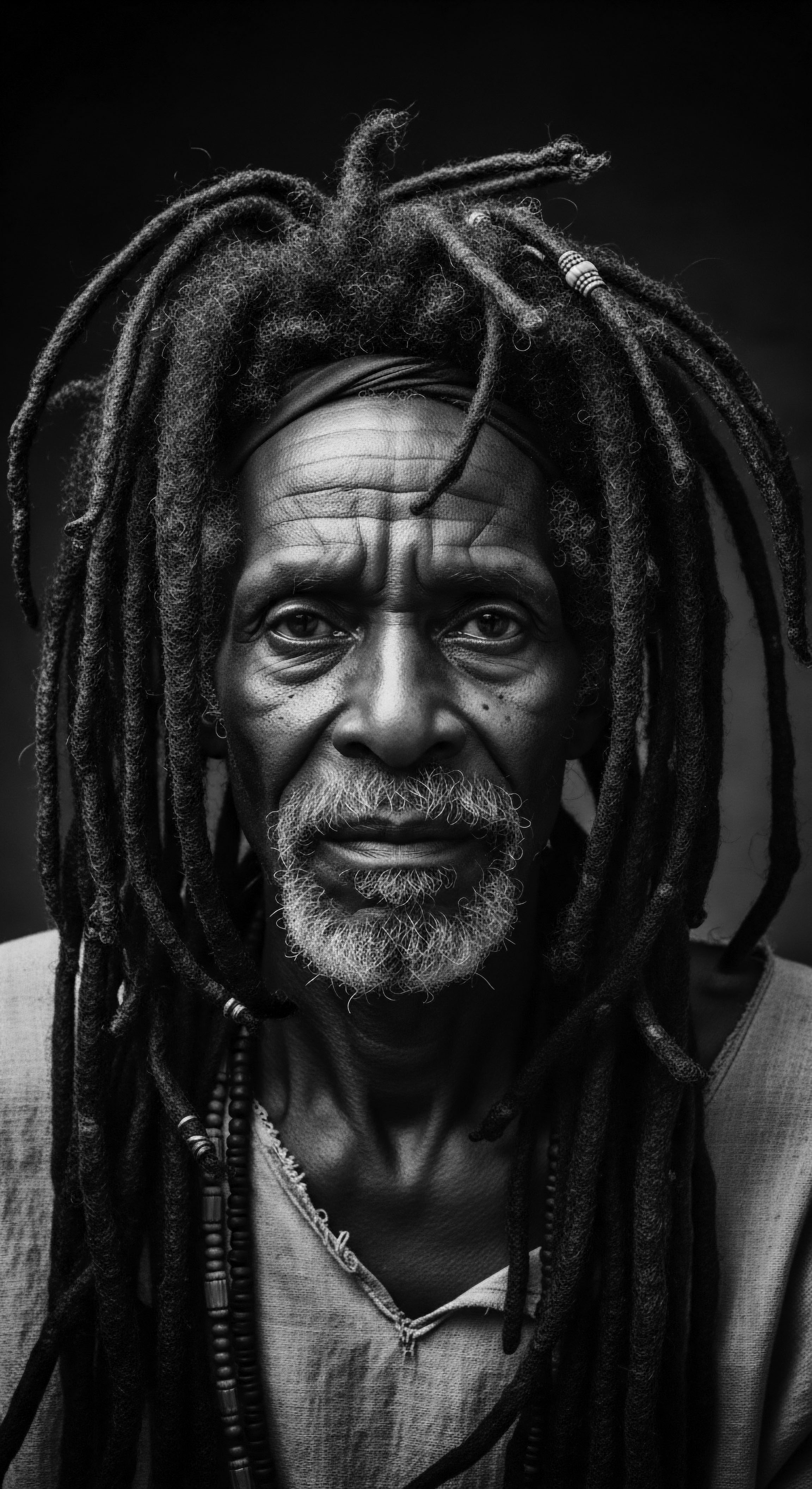
The Decolonization of Aesthetics and the Unbound Helix
The contemporary natural hair movement, therefore, is not merely a trend; it is a continuation of this historical resistance, a conscious act of decolonizing beauty standards and reclaiming autonomy over one’s body and identity. This movement has shifted the conversation from conforming to Eurocentric ideals to celebrating the inherent beauty and versatility of textured hair. It has also spurred legislative efforts, such as the CROWN Act in the United States, aimed at protecting individuals from hair discrimination in schools and workplaces.
Modern Hair Care, in its most evolved academic sense, therefore, becomes a practice of self-knowledge and self-determination. It necessitates:
- Critical Analysis of Products ❉ A discerning eye toward formulations, recognizing the historical exploitation within the beauty industry and supporting brands that genuinely cater to and respect textured hair.
- Reverence for Ancestral Practices ❉ A deep appreciation for the wisdom passed down through generations, understanding that many “modern” innovations have ancient precedents.
- Empowerment Through Education ❉ Disseminating accurate information about textured hair biology and care, countering long-held misconceptions and harmful narratives.
- Advocacy for Equity ❉ Challenging systemic discrimination based on hair texture and promoting inclusive beauty standards that celebrate diversity.
The ongoing evolution of Modern Hair Care within Black and mixed-race communities reflects a dynamic process of healing, learning, and self-definition. It is a powerful demonstration of how personal choices, when viewed collectively, can reshape societal norms and contribute to a broader cultural awakening. The nuanced understanding of textured hair’s unique structure, combined with a profound respect for its historical and cultural weight, forms the bedrock of a truly comprehensive Modern Hair Care philosophy.
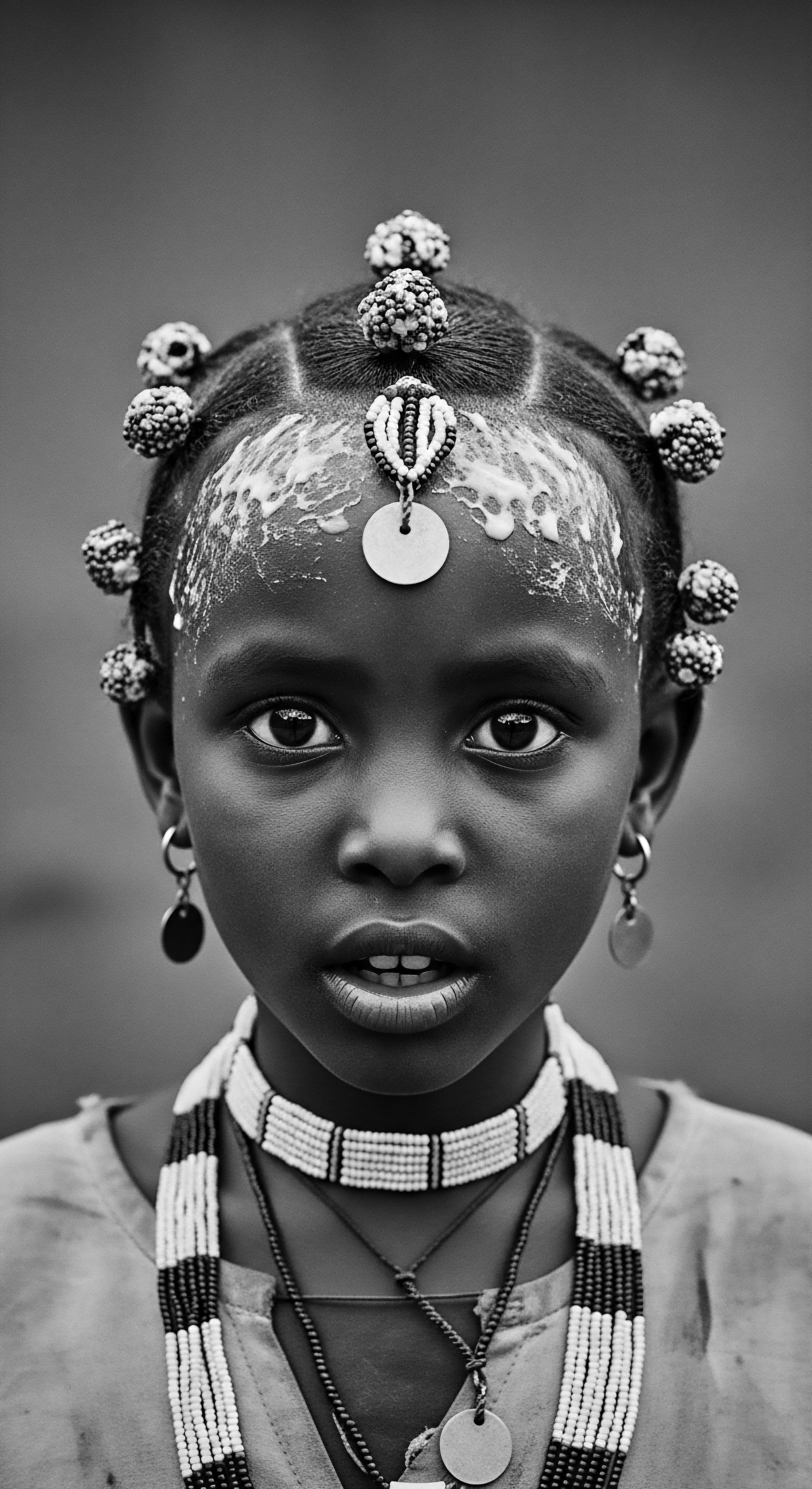
Reflection on the Heritage of Modern Hair Care
As we close this exploration of Modern Hair Care, a profound truth settles upon the spirit: the journey of textured hair, particularly within Black and mixed-race communities, is far more than a simple chronology of products or styles. It is a living, breathing testament to an unbroken lineage, a continuous conversation between ancestral wisdom and contemporary understanding. Each coil, every curl, every strand carries the echoes of resilience, the whispers of forgotten rituals, and the vibrant declarations of identity.
The “Soul of a Strand” ethos, which guides Roothea’s mission, recognizes that hair is not merely an appendage but a sacred extension of self, deeply interwoven with personal and collective history. From the ancient African traditions where hair communicated status, age, and spiritual connection, to the painful period of forced assimilation during the transatlantic slave trade, and through the powerful reclamation movements of the 20th and 21st centuries, hair has consistently served as a potent symbol. The choices made in Modern Hair Care today are thus infused with this rich heritage, a silent yet eloquent dialogue with those who came before us.
The story of textured hair care is a testament to resilience, adaptation, and the enduring power of cultural identity.
This current era of Modern Hair Care, marked by a renewed appreciation for natural textures, stands as a vibrant testament to the enduring power of cultural memory. It is a time when the meticulous braiding techniques passed down through generations are celebrated not just for their aesthetic appeal but for their historical significance. It is a period where the traditional knowledge of plant-based ingredients, long dismissed by mainstream industries, is now recognized for its scientific efficacy. The shift from chemically altering hair to nurturing its inherent structure is a profound act of self-love, a conscious unburdening from the weight of imposed standards.
The journey is, of course, ongoing. Challenges persist, from continued discrimination based on hair texture to the pervasive influence of Eurocentric beauty ideals in global media. Yet, the strength found in collective identity, the shared wisdom exchanged within communities, and the growing scientific validation of traditional practices offer a beacon of hope. Modern Hair Care, then, is not a static definition; it is a dynamic, evolving tapestry woven with threads of the past, present, and future.
It invites us to honor our ancestral roots, to care for our crowns with intention, and to step forward with confidence, knowing that our hair, in its glorious natural state, is a powerful declaration of who we are and where we come from. It is a continuous act of honoring the tender thread that connects us all.
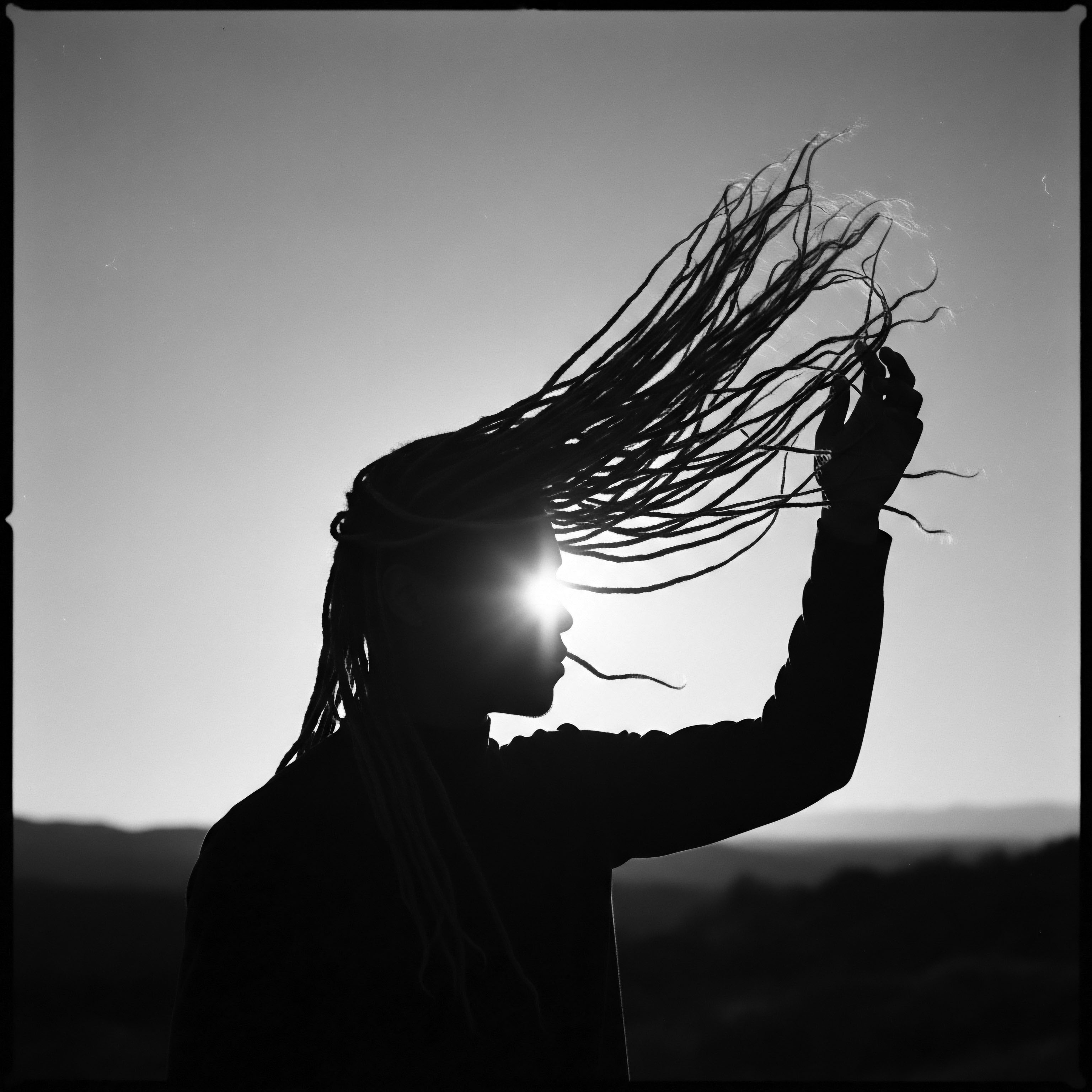
References
- Akanmori, G. (2015). The grooming of hair and hairstyling as a socio-cultural practice and identity was a deprivation Africans went through during slavery.
- Banks, I. (2000). Hair matters: Beauty, power, and Black women’s consciousness. New York University Press.
- Byrd, A. D. & Tharps, L. D. (2001). Hair story: Untangling the roots of Black hair in America. St. Martin’s Press.
- Essel, M. (2023). Hair styling and the significance attached to this practice have played an important role in the African traditional culture.
- Honore, S. A. (2023). Redefining Body Image: The Power of the Black Superwoman, Power and Pain. ResearchGate.
- Omotos, A. (2018). The importance of hair in ancient African civilizations. Journal of Pan African Studies.
- Rowe, K. D. (2018). On Decolonization, Beauty, and Black Hair Aesthetics. Scholar Commons.
- Sieber, R. & Herreman, F. (2000). Hair in African art and culture. The Museum for African Art.
- Sherrow, V. (2006). Encyclopedia of hair: A cultural history. Greenwood Publishing Group.
- White, A. J. et al. (2022). Use of Hair Straightening Products and Incident Uterine Cancer. Journal of the National Cancer Institute.

